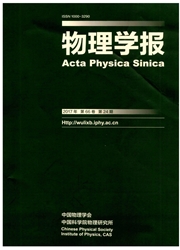

 中文摘要:
中文摘要:
针对传热和热功转换系统的优化设计,分析了熵产最小化理论的优化方向和适用条件.熵产直接度量系统可用能或做功能力的损失,因此熵产最小化理论的优化方向为将系统可用能或做功能力的损失降到最低,从而使系统保有最大的做功能力.然而,在工程应用中,设计目标各有不同.因此,并非所有设计目标均能与熵产最小化的设计方向一致,这就使得熵产最小化并不总是与优化目标相关联.针对传热速率、输出功率等可与熵产建立关联的优化目标,讨论了熵产最小化理论的适用条件.当这些条件不能得到满足时,最小熵产并不一定对应最优性能.对一维传热过程、换热器等传热系统和以输出功率、热功转换效率、热经济性能等为优化目标的热功转换过程进行了分析,结果验证了理论分析所得的结论.
 英文摘要:
英文摘要:
The entropy generation minimization is widely used to deal with optimization problems of heat transfer and heat-work conversion.However,it is found that the minimization of entropy generation does not always lead to the optimization of the design objectives in engineering.So,it is necessary to discuss the optimization direction and application preconditions of the entropy generation minimization.In this paper,we study this topic both theoretically and numerically.Our analyses show that the concept of entropy generation directly measures the exergy loss or the ability loss of doing work,so the optimization objective of the entropy generation minimization is to minimize the exergy loss and maximize the ability to do work for the optimized system.However,we have different design objectives in engineering,such as the maximum heat transfer rate,the maximum heat exchanger effectiveness,the minimum average temperature of the heated domain,the maximum output power,the maximum coefficient of performance of heat pump systems,the homogenization of temperature field,etc.Not all of these objectives are consistent with the optimization direction of the entropy generation minimization.Therefore,it is reasonable that the entropy generation minimization is not always applicable.Furthermore,when the relationship between entropy generation and design objective can be set up,the application preconditions of the entropy generation minimization are also discussed.When the preconditions are not satisfied,the entropy generation minimization does not always lead to the best system performance,either.Some examples are also presented to verify the theoretical analyses above.For heat transfer,a one-dimensional heat transfer problem and the "entropy generation paradox" in heat exchanger are analyzed.For the one-dimensional heat transfer problem,the entropy generation minimization leads to the minimum heat transfer rate when the temperature difference between the boundaries is fixed.Therefore,if our design objective is the maximum heat tr
 同期刊论文项目
同期刊论文项目
 同项目期刊论文
同项目期刊论文
 期刊信息
期刊信息
